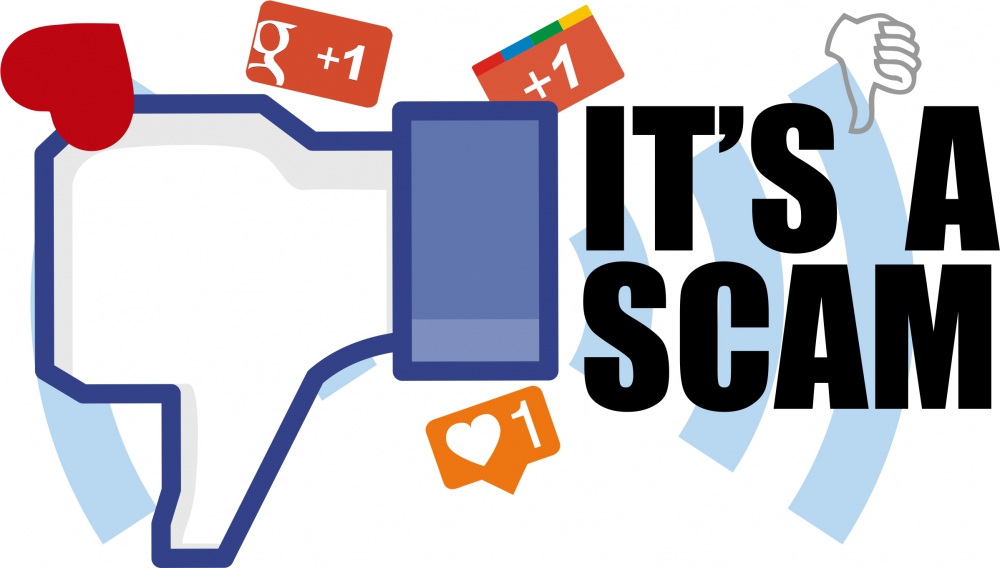Social Media sites like Instagram, Facebook, LinkedIn, Snapchat, etc, are some of the major sites that attract million’s of people every day. At an average Facebook draws over 175million user logins every day. With this much traffic for a site, there arise a dark side “Cyber-Criminals”. I’ve put together some of the scams these cyber-criminals indulge in so you can be aware of em’ and not be a victim of their crime.
#1 Chain Letters
Have you ever received an e-mail stating “Retweet/share this and Bill Gates will share his fortune with you, all you have to do is share it with 15 of you friends”, Just think about it Bill Gates doesn’t even know who you are then why would he share his fortune with you?, Not for fun, many people have shared this kind of e-mails to me, one of my friends even though being a computer science student shared this message with whole class. And this is just one example of Chain Letters.
A clear explanation for chain letter will be, messages that are sent to a huge number of people, asking each recipient to forward it to as many as he can and so on, it is like a chain which can’t be broken. Some of em’ may just be created for prank purpose but not all of em’, some carry hidden threats to your internet security, viruses, phishing attempts, etc. Nowadays chain letters are not only sent through e-mail alone they planted their seed in all social media platform. And the chain can be broken only through awareness.
#2 Lottery and Free Gift Card Scam
There are these posts on social media which are shared by some stupid’s claiming to give out free gift cards to selected people from popular stores like Starbucks, Amazon, Flipkart, etc. The first time I got it was through some popup and it was from Starbucks and I was like “Man! I’ve never gone to Starbucks how come I got it” and I was like ok let's check where it redirects me and what could be the final step so I clicked “Continue” and then this new page popped out of nowhere and asked for my phone number, email id and my card details and asked me to transfer $5 which is refundable once you’ve received your gift card, I didn’t like the offer so I cancelled it 😊. The information might vary, but the price is always fixed, I’ve re-checked it with a lot of sites constant $5(Refundable) and once you’ve made the payment your banking information is sent to their database and your bank balance could even be wiped.
To be safe from this scam is to remember that you can’t win a lottery which you’ve netter entered/applied. And as said earlier in another article no one is gonna give free thinks to anyone, just think we are living in a society where we pay to buy water, how do you think someone is gonna give away free money. And money without effort is worthless. There is a short story which goes on like “There lived a homeless man who won a million dollars from a lottery and spent all of em’ in a week and became a homeless man after a week” the conclusion is that one won’t know the value of money unless/until he/she earned it.
#3 Phishing Scam
Phishing is clearly not a prank and one of the most serious issue which once done can’t be undone. And I’m planning to write a whole article about Phishing. But let me explain to you how largest social media sites are used as baits for this scam. Facebook being the largest social media platform has also become a goto location for cyber-criminals. Despite Facebook’s Efforts to combat Scam’s it still remains a hotbed for phishing.
There are many kinds of phishing on Facebook. Cyber-Criminals will often send emails purport to come from Facebook and closely imitate the look of a genuine E-mail. These emails will include an alarming message like Your password has been changed recently, to make sure that it wasn’t you log in through this e-mail. Once you’ve clicked the link it triggers malware. This is one of the methods and the rest will be updated soon in the upcoming article so stay tuned.
#4 Hidden URLs
Beware of blindly clicking on shortened URLs, you’ll see these kinds of URLs everywhere on major social media sites, But once you’ve clicked it you won’t know what the destination will be because these URLs hides their full location. Clicking these kinds of URLs may lead to the download of some malware on your mobile of pc. Or maybe even download some application in the background and operate your camera. So only click URLs which you actually come across or have ever heard.
#5 Viewers Scam
This scam is similar to another form of phishing where you are made to click on a URL which redirects you to a page which has a similar design and stuff like Facebook/Instagram. and has a description as to check who viewed your profile please login. Once you’ve entered you’re user id and password you are redirected you to you’re actual social media page and you’re details are sent to the scammer's database. The only way to be safe is to check the URL every time you’ve been redirected and to continue only if the URL is legitimate, and always be cautious when giving away/ entering sensitive information.
We spend a ton of time on social media that it’s important to be aware of these potential scams. Sites with high traffic are going to attract criminals. So think ahead of time and protect yourself and the society by letting them know that activities like these are taking place so be cautious.


Comment